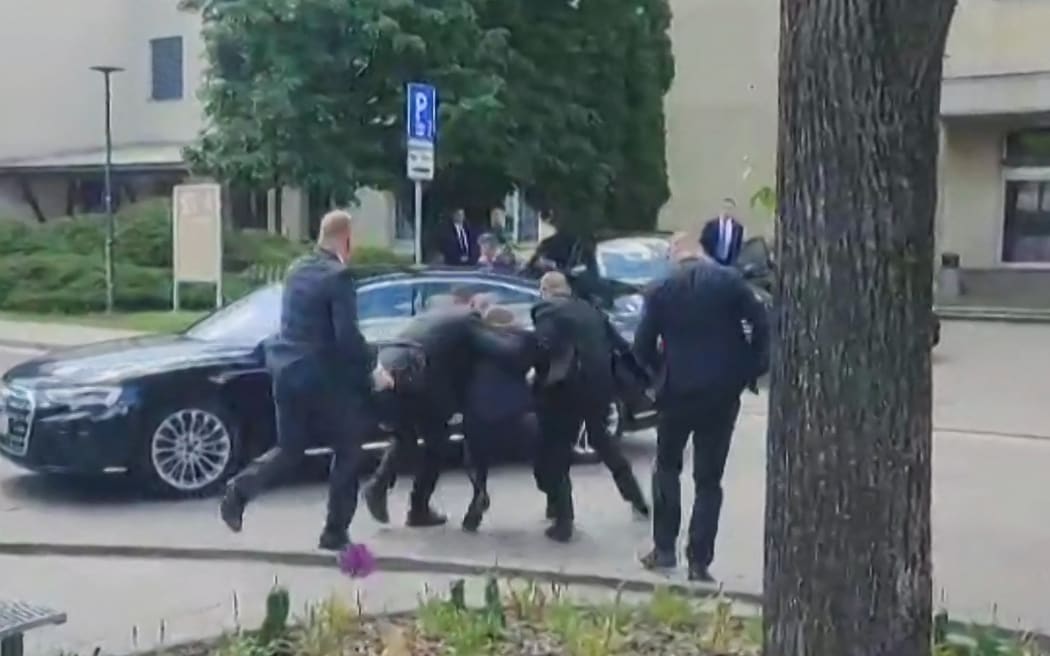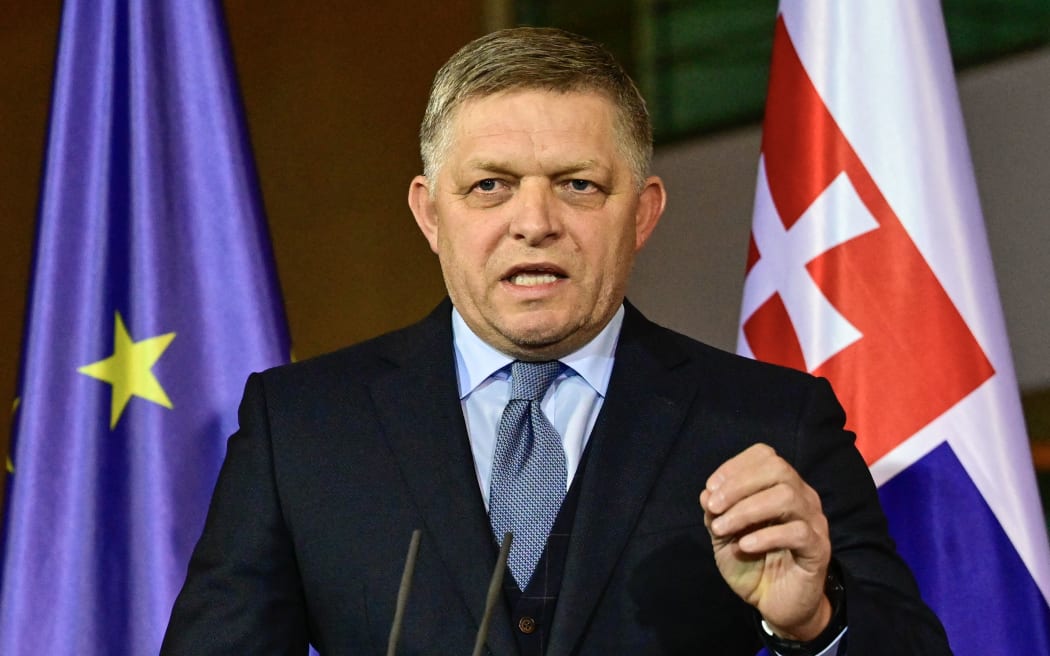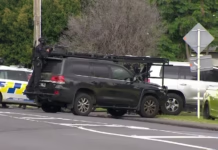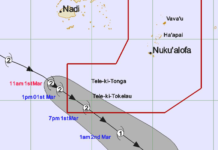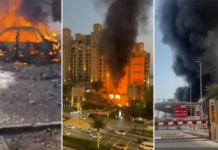Slovak Prime Minister Robert Fico suffered life-threatening injuries when he was shot and wounded in an attempted assassination on Wednesday, the government office said.

Slovak media said the shooter was a 71-year-old man but the motive was not immediately clear.
The incident shocked Slovakia, a small central European nation with little history of political violence. Slovakia’s partners in the European Union and NATO condemned the shooting.
Fico, 59, was rushed to hospital in the central Slovak town of Handlova where he had been chairing a government meeting. He was then transported by helicopter to regional capital Banska Bystrica for urgent treatment, it said, adding that his condition was too serious for him to be taken to Bratislava.
This image taken from video footage obtained by AFPTV shows security personnel carrying Slovakia’s Prime Minister Robert Fico, centre, towards a vehicle after he was shot. Photo: AFP
A Reuters witness heard three or four shots as Fico exited a building to shake hands with a crowd of people who had been waiting to greet him. Police then wrestled a man to the ground.
“An assassination (attempt) on Prime Minister Robert Fico was carried out today at the government’s off-site meeting in Handlova,” the government office said in a statement.
News outlet Aktuality.sk reported the shooter was a 71-year-old man and cited his son as saying his father was the legal holder of a gun licence. It did not name either of the men.
“I have absolutely no idea what my father intended, what he planned, what happened,” it quoted the shooter’s son as saying.
Broadcaster TA3 reported four shots had been fired, and that the leftist prime minister had been hit in the abdomen.
“I don’t think I will wake up from this,” Lubica Valkova, a 66-year-old resident told reporters. “This kind of thing just can’t happen in Slovakia.”
Veteran leader
Fico, who returned as prime minister last October for the fourth time, has drawn criticism in some quarters for taking a more pro-Russian stance in the Ukraine war and initiating reforms of criminal law and the media which have raised concerns over the rule of law and prompted street protests.
Slovakia’s Prime Minister Robert Fico. Photo: AFP
Following the shooting, Slovakia’s biggest opposition party Progressive Slovakia called off a planned protest against government public broadcaster reforms set for Wednesday evening.
“We call on all politicians to refrain from any expressions and steps that could contribute to an escalation of tension,” said Michal Simecka, leader of Progressive Slovakia, a liberal pro-Western party.
Slovakia’s acting speaker of parliament Peter Ziga condemned the shooting as an attack on the principle of democracy.
“Such a horrible act has never happened in Slovak history. I consider it to be the result of whipped-up passions and the division of Slovak society into two irreconcilable camps,” he said.
Under Slovak law, a deputy prime minister will replace Fico while he is incapacitated.
During a three-decade career, Fico has moved between the pro-European mainstream and nationalistic positions opposed to EU and US policies. He has also shown a willingness to change course depending on public opinion or changed political realities.
European Commission president Ursula von der Leyen led international condemnation of the attack.
“Such acts of violence have no place in our society and undermine democracy, our most precious common good. My thoughts are with PM Fico, his family,” she said.
German Chancellor Olaf Scholz expressed shock on X, adding: “News of the cowardly assassination attempt on Slovakian Prime Minister Fico shocks me deeply. Violence must have no place in European politics.”
Slovak President Zuzana Caputova wrote on X: “Utterly shocked by today’s brutal attack on #Slovakia’s Prime Minister Robert Fico, which I condemn in strongest possible terms.
“I wish him lot of strength in this critical moment and early recovery.”
President-elect Peter Pellegrini cut short a foreign trip and is returning to Slovakia, a spokesperson for his HLAS party said.
This story appeared on rnz.co.nz

